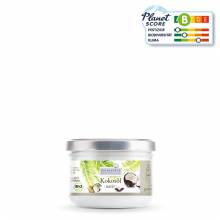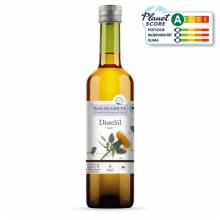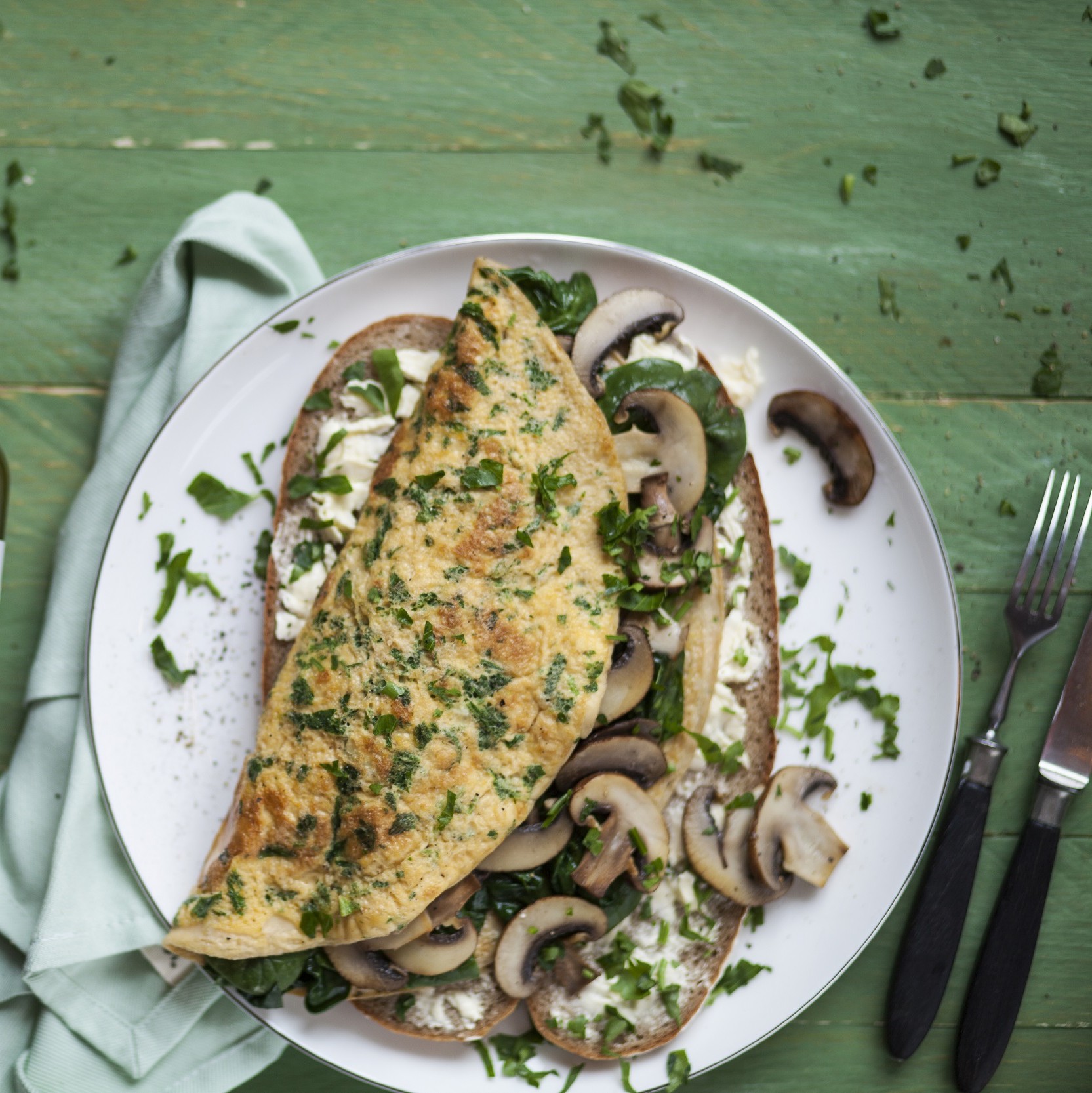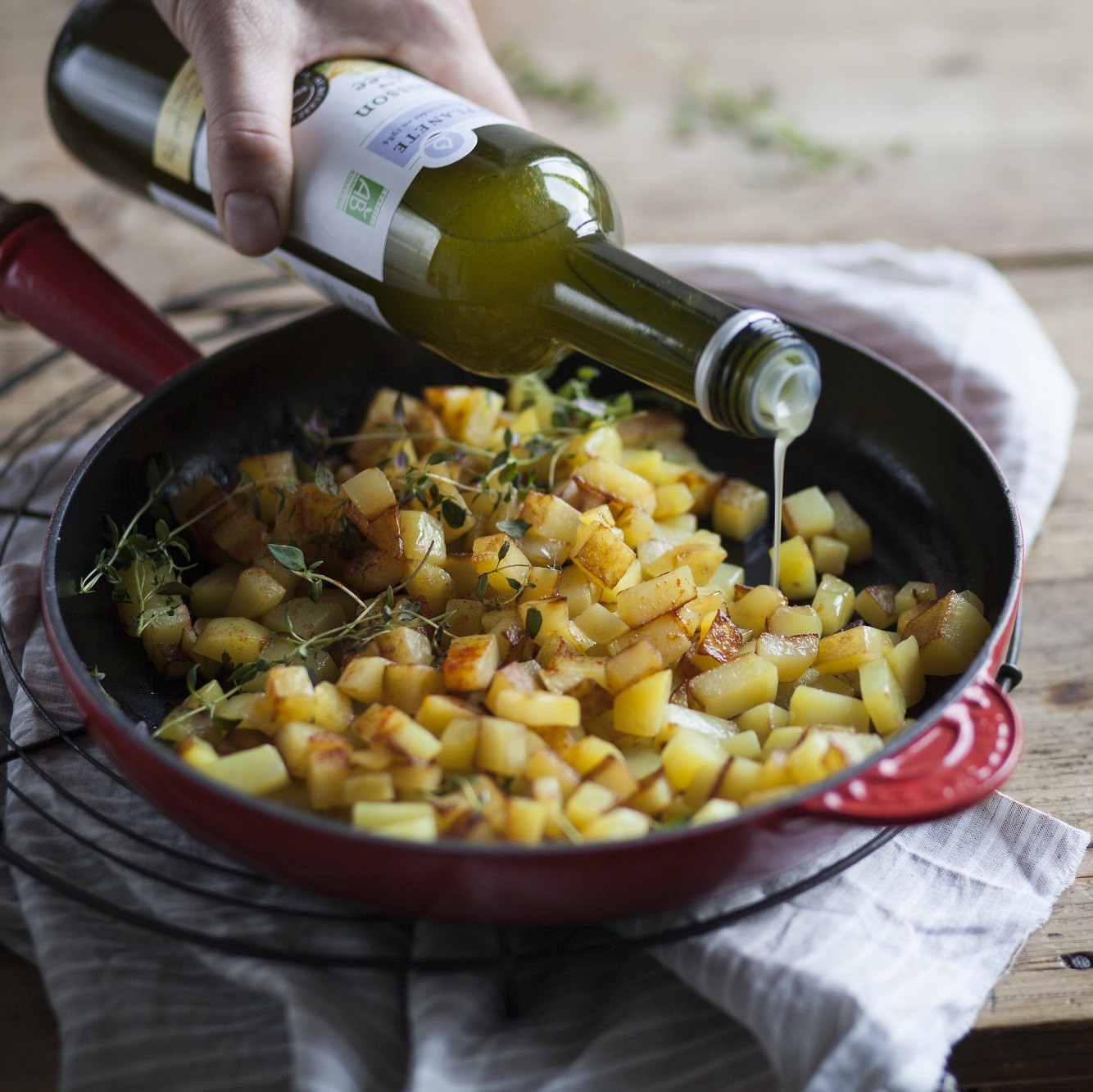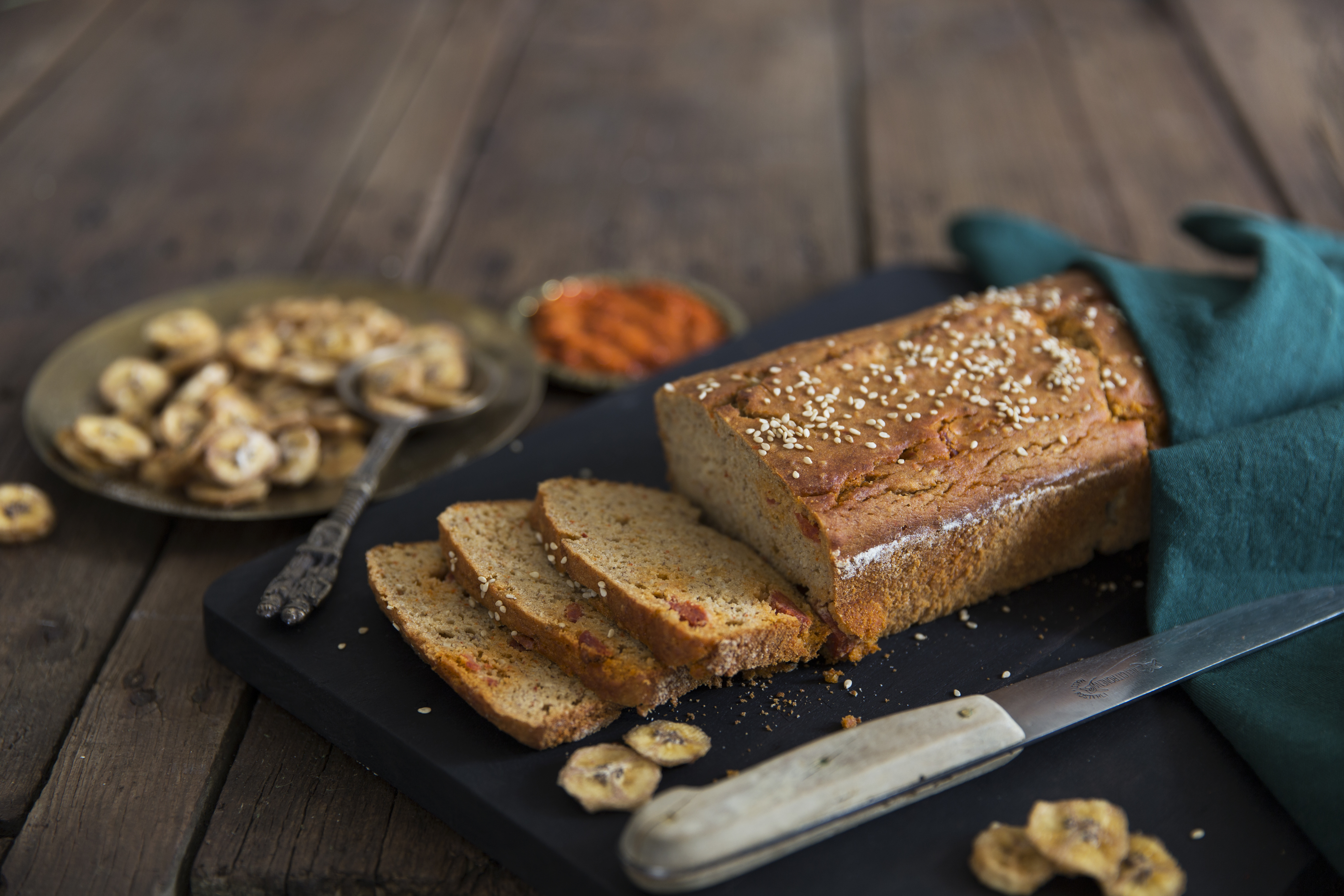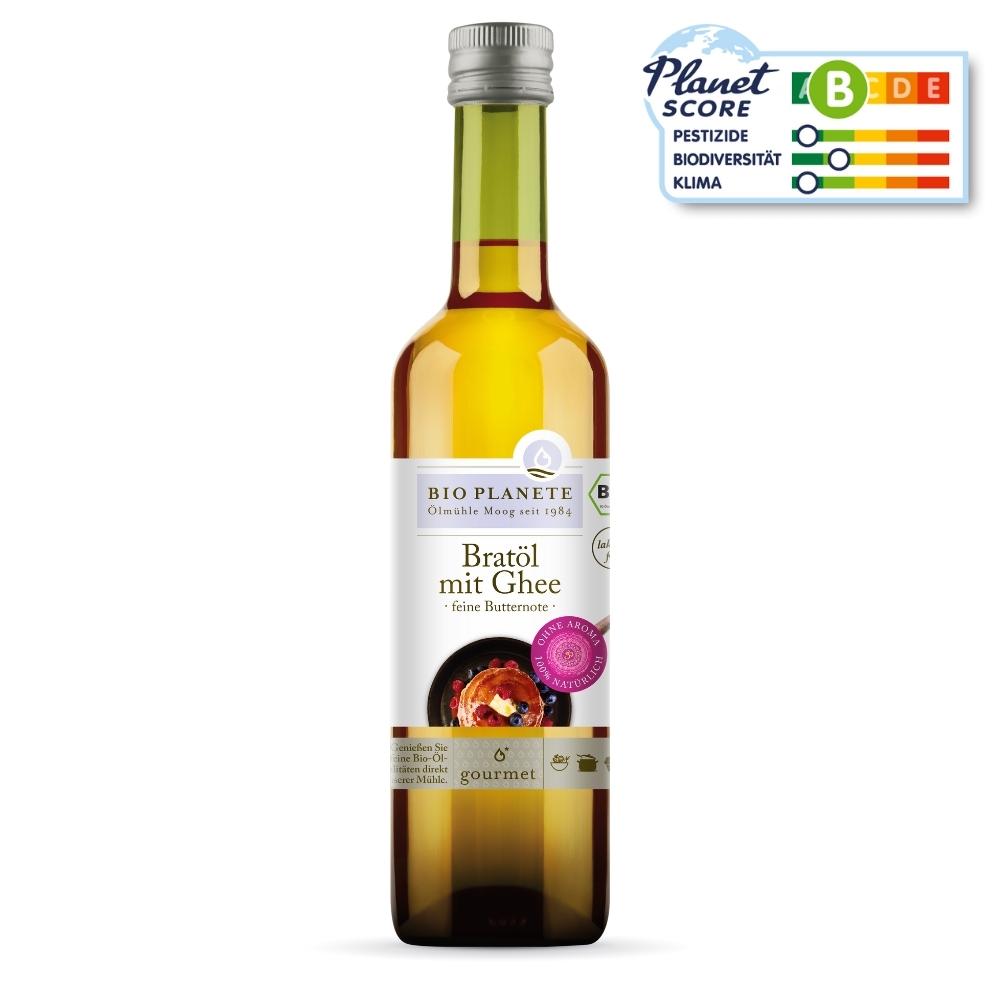
Cooking & Frying Oil with Ghee
· Mixture ·
500 ml
Do you like the buttery touch, but don't want to use butter? Then the BIO PLANÈTE Cooking & Frying Oil with Ghee is just the right oil for you! It is the lactose-free combination of oleic acid-rich Sunflower Oil and an intensive buttery taste, which does not contain any aromatic substances.
Ghee is responsible for this mild buttery touch, which is mainly used in Ayurvedic cooking. In this so-called "clarified butter", milk protein, water and lactose are removed from the butter, leaving a form of clarified butter. We have combined the ghee with oleic acid-rich Sunflower Oil, making our Cooking & Frying Oil with 68 g / 100 ml rich in monounsaturated fatty acids and vitamin E (41 mg / 100 ml).
This oil is one of the first food products in Germany and France which has been rated with the Planet Score. For this eco-labelling, additional indicators are used alongside the life cycle assessment to better capture the environmental impact of food production. Read more about the Planet Score.
Recipe ideas and use of Cooking & Frying Oil with Ghee
Our BIO PLANÈTE Cooking & Frying Oil with Ghee is ideal for nutrition-conscious consumers. It is highly heatable and suitable for everyone who values a delicate buttery taste when cooking and frying. Fresh vegetables or fish can be fried just as well as omelette, fried potatoes or desserts (e.g French toast). In comparison to butter or clarified butter, the liquid consistency also allows a particularly precise dosage.
In addition to the Cooking & Frying Oil with Ghee, try our Cooking & Frying Oil Olive Oil and Cooking & Frying Oil.
* Product of organic farming
** This product contains a finely composed mixture of different ingredients. As a rule, the main ingredient originates from the country mentioned here. Should the proportion of ingredients be equal, more than one country will be declared. Should any questions regarding product origin arise, please contact us: contact@bioplanete.com or +33 (0) 4 68 76 70 6
Average nutritional analysis for 100 ml
** % of daily reference intake (adults)
Shake well before use.
-
Where does the vitamin E come from? Was it added to the oils artificially?
Vitamin E occurs naturally in cold-pressed cooking oils because the plants make this vitamin and, due to its chemical properties, it passes to the cooking oil during cold pressing. Incidentally, the following are especially high in vitamin E: natural Sunflower Oil, natural Safflower Oil and natural or roasted Almond Oil.
-
What conditions and standards are behind the organic seal on our oils?
An organic seal is a quality and test seal with which products from organic farming are marked. In 2010, a binding new organic seal was introduced throughout the EU, also known as the EU organic logo, which identifies food from organic farming (a star-shaped leaf on a green background).
This seal replaced the German state organic seal (green hexagon with "BIO" lettering), which had existed since 2001, with the same standards in terms of content. Due to the high degree of popularity of its predecessor, both seals are still often used today.
The use of this certification is strictly regulated by the publisher and is subject to ecological requirements. Compliance with the criteria by producers is ensured by a documentation obligation as well as regular sampling and examination of product samples. Compliance with the regulations is monitored in Europe by the responsible Eco-Control bodies.
Foods labelled with the organic seal must, among other things:
• Not be produced by or with/from genetically modified organisms
• Not to be produced with the use of synthetic pesticides
• Contain no more than 5% conventionally produced components (in exceptional cases, if ingredients are not available in ecological quality, in accordance with Annex VO)
• not contain sweeteners and stabilisers as well as synthetic colourants, preservatives and flavour enhancers
• not result from monotonous crop rotations (two-, three- and four-field farming)
• and much more: more information on the EU Organic Label -
Can I use the oil even after the expiration date?
We can no longer guarantee the oil's perfect quality after its best before date.
In the interest of sustainability, however, we would like to point out the following: vegetable oils do not belong to the group of very sensitive foodstuffs and can usually still be consumed after the best-before date. This is especially true if the bottle is still sealed and it has been stored away from heat sources. Therefore, we recommend using your senses to test the oil before disposing of it. Oil that has been stored for too long can be easily recognized by smell and taste. If it tastes rancid or unusual (off), it should not be consumed. -
How do I remove the labels from the jars and bottles?
Since we use oil-soluble glue for the labels, the best way to remove the label from the coconut jars is with oil. Simply coat the label with oil, let it absorb overnight and peel off easily in the morning. However, if the label is already off and only the glue is on it, this method doesn't work as well. In this context, we have been told of positive experiences with orange oil cleaner, such as from AlmaWin or Sodasan. Another option is a hair dryer - because heat also loosens the label well.
Get more suggestions at Upcycling & Creative.
